From "learner" to process improvement
Vietnamese organ transplant from "learner" to mastering technique and improving process
This is the sharing of Dr. Duong Duc Hung - Director of Viet Duc Friendship Hospital, on the sidelines of the International Scientific Conference "The role of surgery and organ transplantation in the era of global integration". The conference was organized by Viet Duc Friendship Hospital on November 1 in Hanoi.
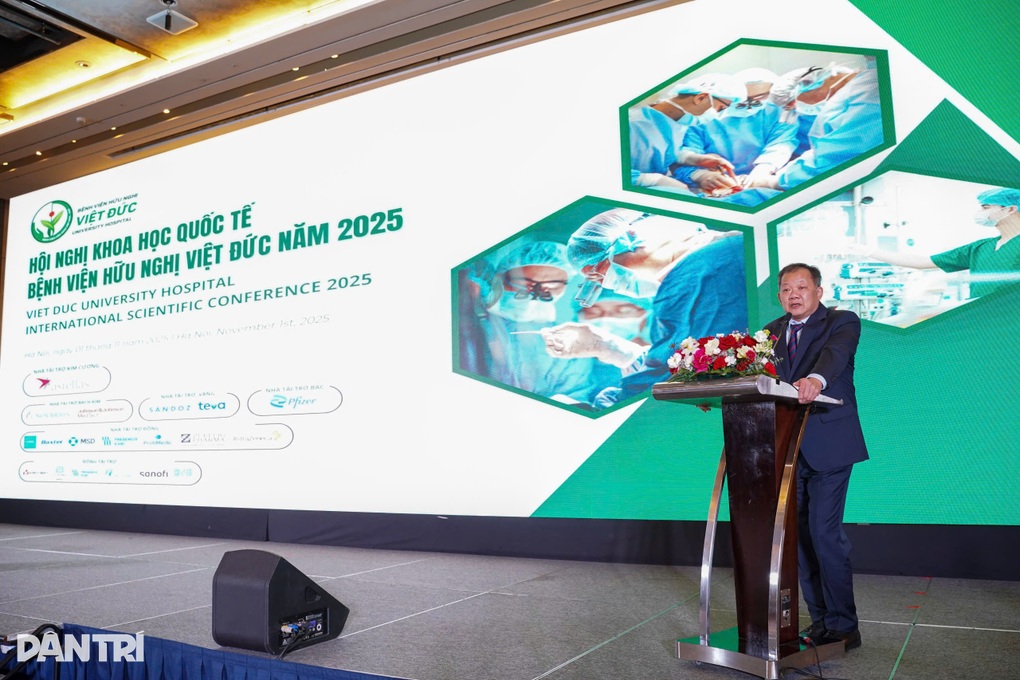
Dr. Duong Duc Hung - Director of Viet Duc Friendship Hospital delivered the opening speech at the conference (Photo: Minh Nhat).
According to Dr. Hung, in the last 15 years, Vietnamese medicine has progressed very rapidly. Currently, many techniques, including organ transplants, have approached the level of developed countries.
Dr. Hung pointed out: “Vietnam’s first organ transplant was performed in 1992 with the support of foreign experts. At that time, we were students. But after a while, Vietnam completely mastered the technique, even improving the process to better suit real-life conditions.”
Sharing at the conference, Dr. Nguyen Trong Khoa - Deputy Director of the Department of Medical Examination and Treatment Management ( Ministry of Health ) informed that, by April this year, the Ministry of Health had recognized 30 hospitals qualified to take and transplant human organs, 85 hospitals were trained in organ donation and brain death assessment, and 12 medical facilities were licensed to operate tissue banks.
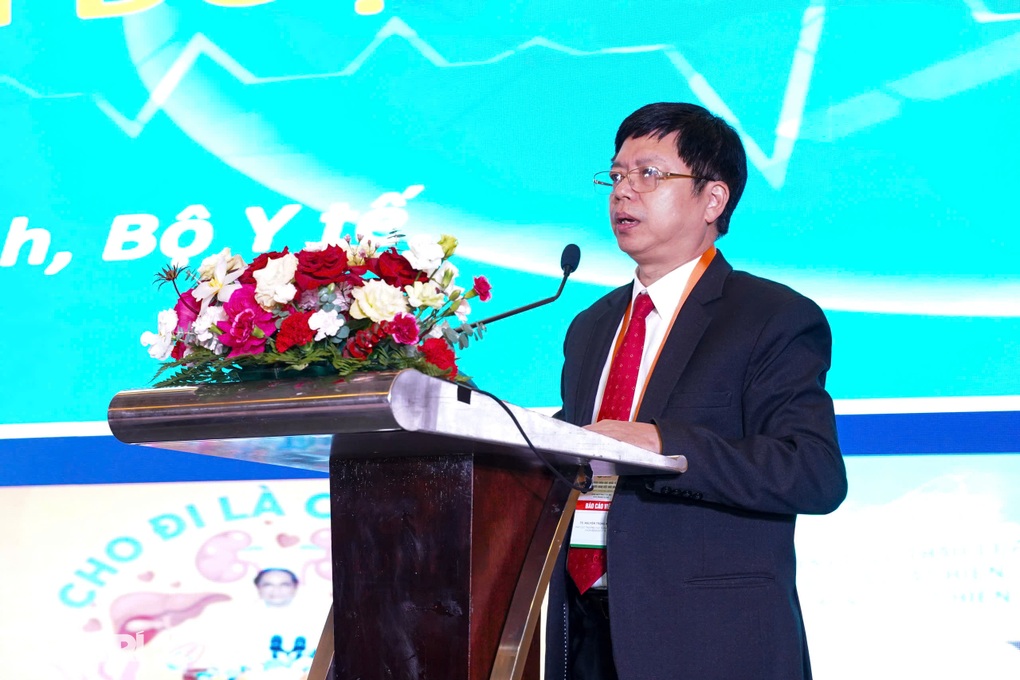
Dr. Nguyen Trong Khoa - Deputy Director of the Department of Medical Examination and Treatment Management (Photo: Minh Nhat).
“Vietnam has performed six types of human organ transplants. The total number of transplants performed is 9,805, including 8,904 kidney transplants, 754 liver transplants, 126 heart transplants, 13 lung transplants, three upper limb transplants and two intestine transplants, along with hundreds of tissue transplants (cornea transplants, skin transplants, stem cells),” Dr. Khoa shared. Currently, more than 120,000 people have registered to donate organs after death/brain death.
Viet Duc Friendship Hospital is the leading organ transplant center in Vietnam. Over the past 15 years, the facility has recorded an increasing rate of multiple organ retrieval and transplantation, contributing to saving the lives of many patients with end-stage organ failure.
Statistics in 2024 recorded 20 brain-dead patients donating organs, many times higher than in 2010, when there were only 3 cases.
Adjusting the legal framework to develop organ transplantation in Vietnam
According to Dr. Khoa, to further develop the field of organ transplantation in Vietnam, there are still many difficulties that need to be resolved, first of all the legal framework.
The Law on Donation, Removal and Transplantation of Human Tissues and Organs was issued 19 years ago, so many regulations are no longer suitable to reality.
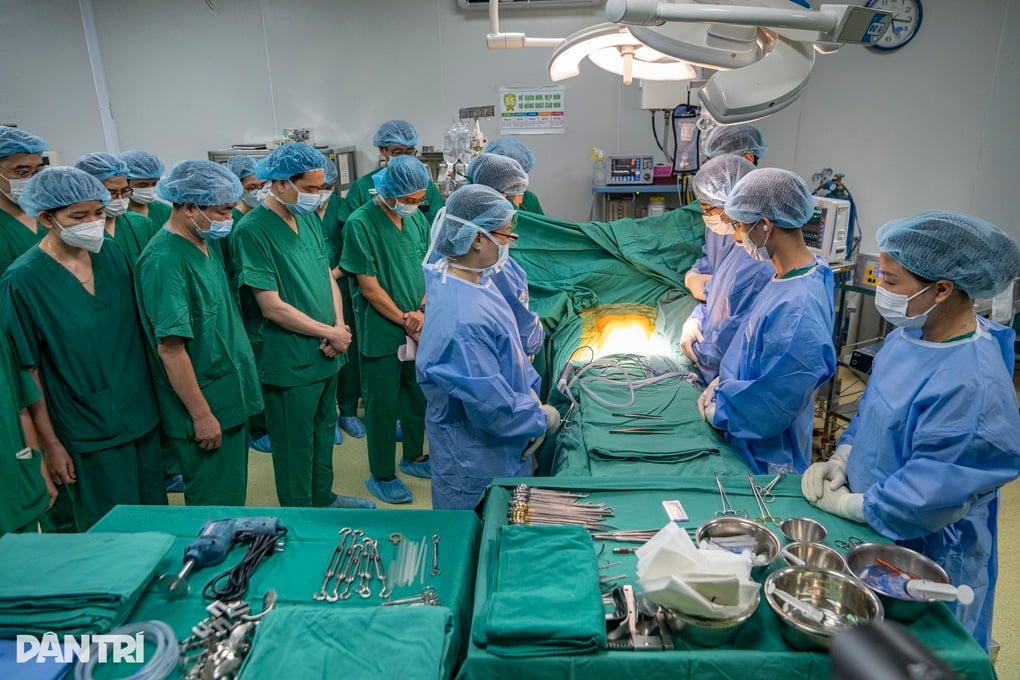
Organ transplants help give life chances to people with terminal illnesses (Photo: Manh Quan).
Dr. Khoa cited that the old law did not have regulations on people with circulatory death, regulations on resources for organ transplants, as well as calculations of costs related to health insurance.
Coordination mechanisms also need to be considered to enhance openness, transparency, and avoid crime in the field of organ trafficking.
“To do that, the law needs to have strict and humane adjustments,” Dr. Khoa emphasized.
Sharing the same view, Dr. Duong Duc Hung said that it is time to amend the law to conform to medical reality and social ethics, creating a more complete and flexible legal corridor for organ transplant activities.
In addition, the law still requires the consent of relatives, even if the deceased had registered to donate organs while alive.
“This is the biggest barrier that causes many precious organs to be buried instead of saving lives,” he said.
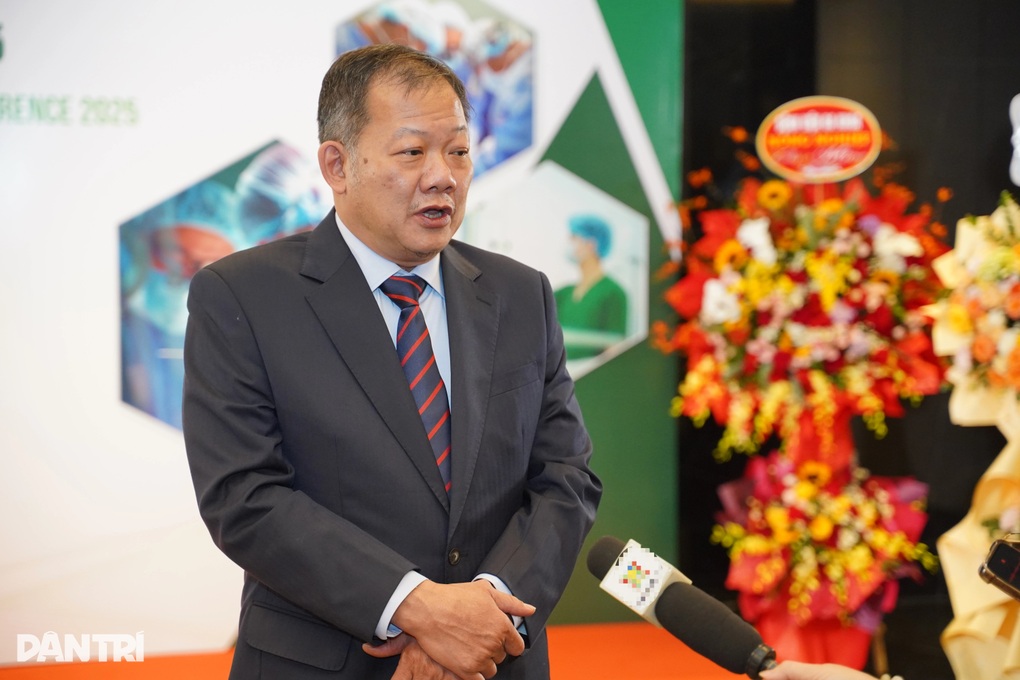
Dr. Duong Duc Hung said that it is time to amend the law to conform to medical reality and social ethics (Photo: Minh Nhat).
The Director of Viet Duc Friendship Hospital proposed that Vietnam should learn from the model of developed countries, in which people who have registered to donate organs will be absolutely recognized, without needing family consent.
According to Dr. Nguyen Trong Khoa, there are expected to be 4 new key points in the Draft Law on Amendments and Supplements:
Point 1
Donor age: People under 18 years of age are allowed to donate after brain death with the consent of a parent or guardian.
Separate the age of living donors into two groups: related (≥18 years old) and unrelated (≥30 years old).
Point 2
Additional provisions on circulatory death.
Determining brain death: relaxing mandatory regulations on forensic examination time.
Add radiologist to brain death determination process.
Point 3
Costs and sources of payment: issue a list of donation and transplant costs (examination, testing, resuscitation, anti-rejection drugs, follow-up examinations, etc.).
Source of funding: from health insurance, state budget, legal funding sources.
Point 4
Create a legal corridor for regenerative medicine, prevent commercialization, ensure safety and humaneness.
Supplementing regulations for research on sources of donation, collection, preservation and use of stem cells, blood and stem cell products.
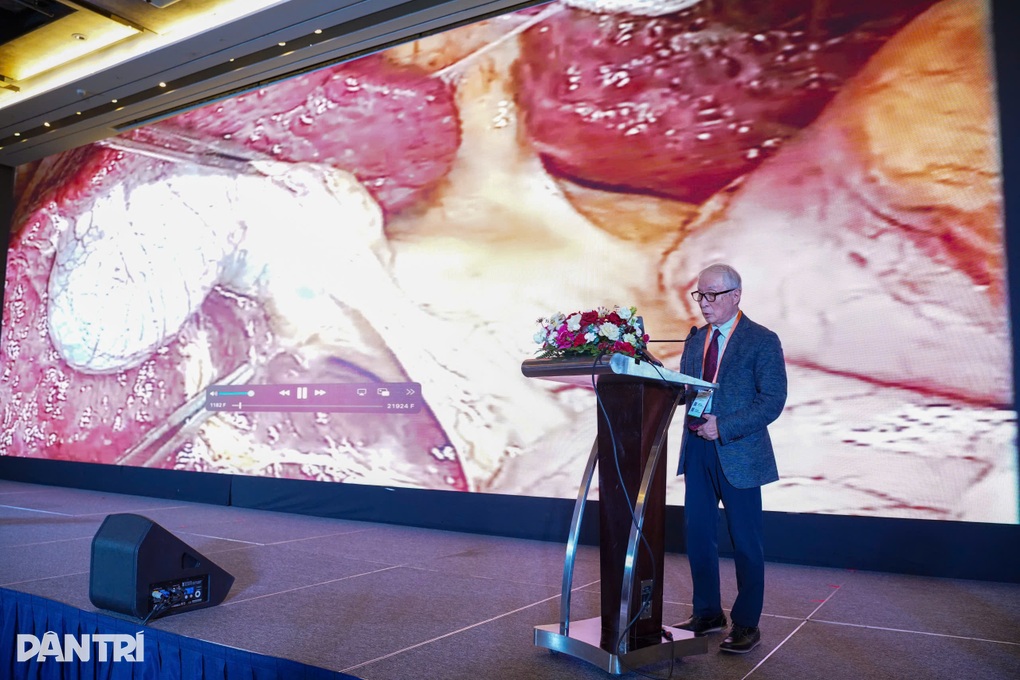
Professor Ken Takasaki is one of Japan's leading liver surgeons and the creator of the Glissonean pedicle liver resection method (Photo: Minh Nhat).
At the conference, domestic and foreign experts also shared and discussed the latest advances in the field of surgery and organ transplantation, contributing to promoting international cooperation and improving the quality of treatment for patients in Vietnam.
The conference took place in one day with 4 in-depth scientific reporting sessions, focusing on key areas such as: organ transplantation, hepatobiliary surgery, cardiovascular - thoracic, urology, digestion, obstetrics and gynecology, orthopedic trauma and wound healing.
Source: https://dantri.com.vn/suc-khoe/3-thap-ky-ghep-tang-viet-nam-tu-nguoi-di-hoc-den-cai-tien-quy-trinh-20251101144008094.htm





![[Photo] President Luong Cuong receives US Secretary of War Pete Hegseth](https://vphoto.vietnam.vn/thumb/1200x675/vietnam/resource/IMAGE/2025/11/02/1762089839868_ndo_br_1-jpg.webp)

![[Photo] Lam Dong: Images of damage after a suspected lake burst in Tuy Phong](https://vphoto.vietnam.vn/thumb/1200x675/vietnam/resource/IMAGE/2025/11/02/1762078736805_8e7f5424f473782d2162-5118-jpg.webp)
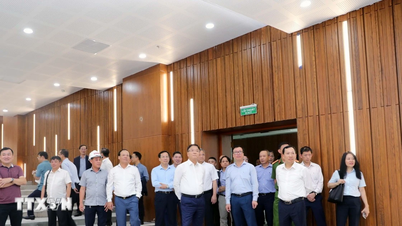

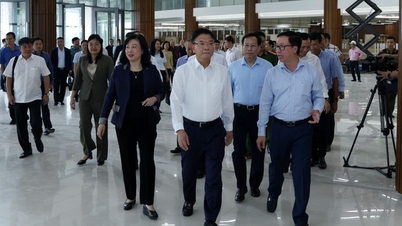

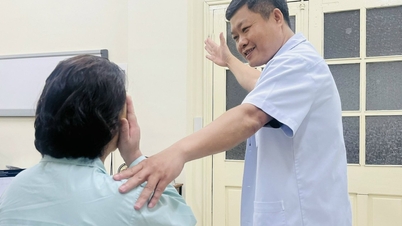

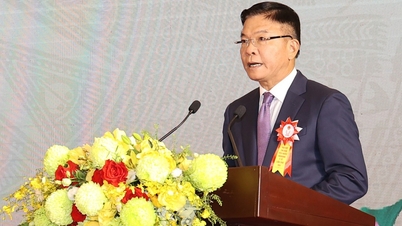

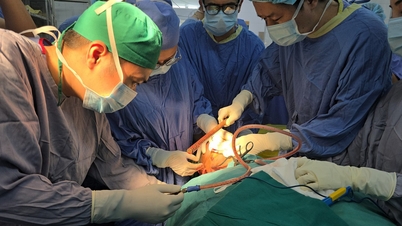
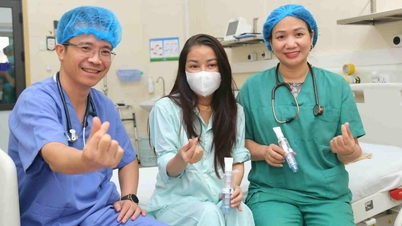

















































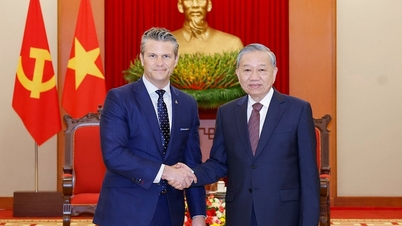


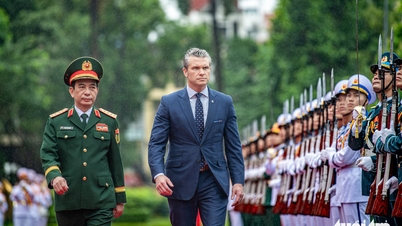
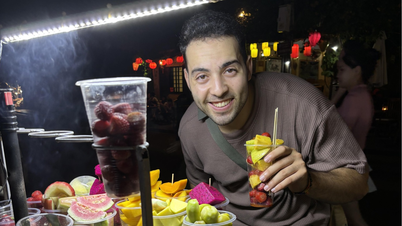







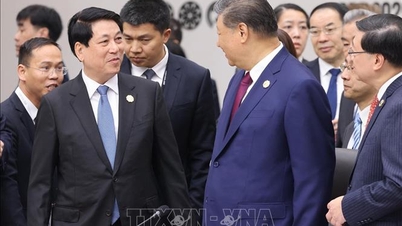

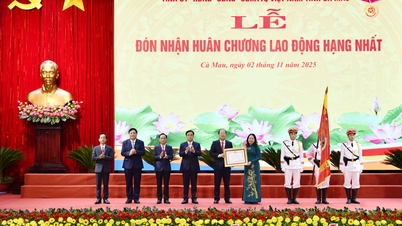









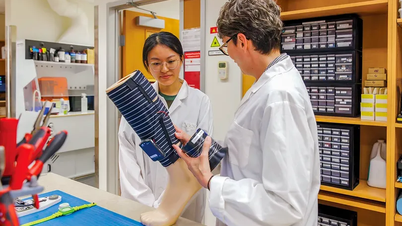
















Comment (0)